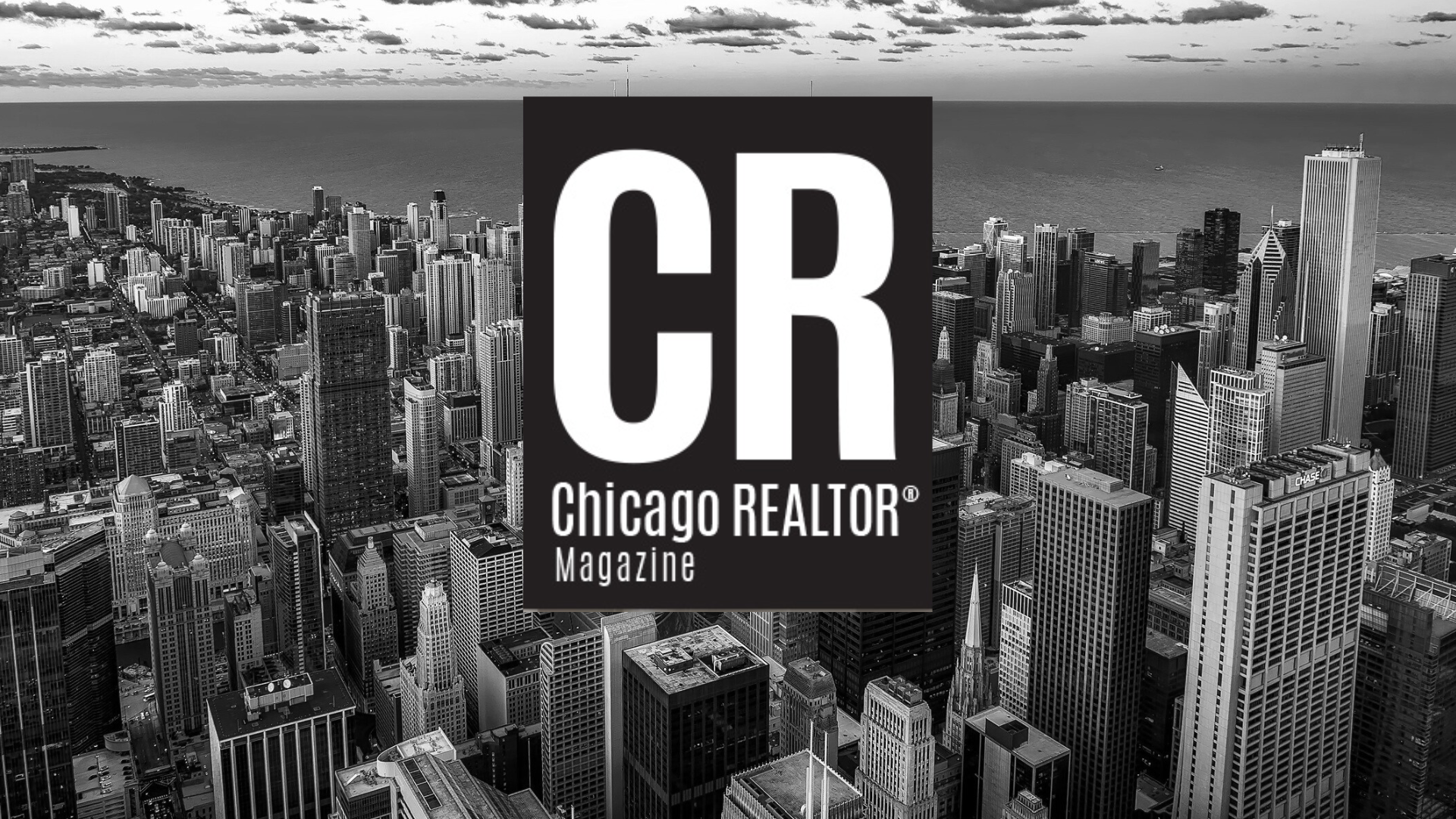ALL EYES ON BUDGETS FOLLOWING SUMMER RECESS
Most government bodies took a recess in August, including Chicago’s City Council and the Cook County Board of Commissioners, with plans to reconvene in September. Expect a brief period of regular business, and then all eyes will turn to the budget. Many initiatives like Emergency Rental Assistance were funded by the federal government, and some of the federal money is expected to fund ongoing operating expenses. The budget must be passed by December 31, 2021; however, in recent memory, all City of Chicago budgets were passed and adopted around Thanksgiving, if not before.
CHICAGO DEPUTY MAYOR MET WITH BOARD OF DIRECTORS
If there is open dialogue, there is hope, even when parties disagree. While we constantly monitor and attempt to modify introduced proposals, it’s promising that City of Chicago officials are willing to maintain open communications with our association, which was on full display when Deputy Mayor Samir Mayekar, joined by a representative from the Department of Housing, visited a recent Board of Directors meeting. They discussed not only policies that we can partner on, but also policies where we don’t see eye-to-eye.
LANGUAGE CHANGES TO SCOFFLAW LIST ORDINANCE
The mayor’s office introduced an ordinance to the Committee on Zoning, Buildings and Landmarks. The ordinance makes language changes to the “scofflaw list and associated restrictions.” The term “problem landlord” was struck throughout the ordinance, but the term “scofflaw” remains. The proposal also restricts the issuance of permits to owners while deemed a scofflaw. Additionally, the ordinance clearly identifies what it means to have 25% ownership or more in a property; those with an ownership interest greater than 25% are also barred from receiving permits and licenses until the scofflaw matter is rectified. The matter passed out of City Council.
EVICTION MORATORIUM SET TO EXPIRE
Hopefully, property managers encouraged tenants to apply for Emergency Rental Assistance, as there were multiple opportunities to apply with the city, county and state. However, we know the formal eviction process will be needed to reclaim possession of property. Once the governor’s Eviction Moratorium expires, residents in the City of Chicago are granted an additional seven days before an eviction may be filed. This seven-day “freeze” with the standard fiveday notice provides the renter a total of 12 days before an eviction may be filed. During this 12-day period, the housing provider and tenant are encouraged to reach an agreement for repayment. An agreement is not mandatory, but a good faith effort must occur.
WHAT YOU NEED TO KNOW ABOUT THE KEEP CHICAGO RENTING ORDINANCE
The revised Keep Chicago Renting Ordinance (KCRO), introduced by the City Council and passed in July, is an attempt to protect tenants in foreclosed rental properties. They are attempting to modify the ordinance under the new standard, set by the Illinois Appellate Court in the case of Rivera v. Bank of New York.
The KCRO mandates properties in foreclosure with tenants must be registered with the Department of Housing. More often than not, the party controlling the unit during the foreclosure process is a bank, financial institution or court-appointed receiver, but the new Ordinance expands this definition to those who buy as a short sale.
Upon taking possession, the new owner must ascertain who the rental occupants are and leave a notice in the native language of the renter (by statute, nine languages are listed). The exact language of the notice is provided in the ordinance; however, the most concerning part states that you may reject the offer of a new rental agreement and still receive $10,600 in relocation assistance.
The ordinance’s text provides an exception, stating, “The owner…shall pay a one-time relocation assistance… unless the owner negotiates in good faith for a new rental agreement that lasts 12 months, offers such qualified tenant a new rental agreement according to these terms, and the qualified tenant accepts the owner’s offer in writing. Relocation is not owed if valid eviction took place.” Clearly, the ordinance places a strong emphasis on negotiating with the tenant in “good faith.” Good faith is detailed at length within the ordinance, but still susceptible to wide interpretation.
Our concern is with the prospect of the housing provider. No matter what and how they engage with the tenant, the tenant has no incentive to negotiate in good faith; ultimately, the standard of good faith will be interpreted by a court. As with many local standards, a housing provider will need to incur costs to defend against frivolous lawsuits and claims.
REASSESSMENT REVEALS EARLY WINNERS, LOSERS
There are close to 1.9 million land parcels in Cook County which must be reassessed every three years, and 2021 is the year for Chicago property owners. Each owner will receive valuation sheets directly from the Assessor’s office, and this Fair Market Value (FMV) will be the basis of property tax bills for the next three years. Simply put: if there’s a significant change to the FMV, the tax bill likely will follow suit.
There are eight townships in the City of Chicago: Rogers Park, West, Jefferson, North, South, Lake, Lakeview and Hyde Park. Townships help the Assessor’s Office zone in on specific areas throughout the city and compare market activities.
Early indications point to condos remaining safe from significant increases. In Rogers Park Township, for example, there were no increases of FMVs for condominium owners. In West Chicago Township, condo owners saw a small increase of five percent.
There is a different outlook for single-family homes and multifamily from two to six units. According to the Assessor’s Office, specifically for the Rogers Park Township “the median sale price of a single-family home was about $340,000 in 2018 and $380,000 in 2020 representing a change at $40,000 or a 12% increase in value.” Similarly, “the median sale price of a single-family property in West Chicago was about $300,000 in 2018 and $440,000 in 2020. This is a change of $140,000 or 47%.”
On the commercial side, owners are seeing substantial increases. In fact, for West Township, nonresidential properties had an increase of over 100% value. Keep in mind, the Assessor does not calculate tax bills, only the FMV of property. There are many factors used to calculate an owner’s tax bill, including state equalizer, tax rate, assessment rate and more. These increases will not be fully known to taxpayers until the summer of 2022, when the second property tax bill is mailed.
A challenge for the Assessor’s Office will be the COVID factor adjustment that was broadly applied to single-family homes and residential properties throughout the county in 2020, giving residential owners a reduced assessment. Looking back, it wasn’t completely reflective of what would happen over the next twelve months, as the vibrant housing market offered short supply and strong demand. REALTORS® will be impacted as buyers and sellers negotiate escrow for future property taxes.
PROPERTY TRANSACTIONS HELP COOK COUNTY REVENUE RECOVER
Cook County released early numbers for the 2022 budget, and surprisingly, revenues appear to have recovered. REALTORS® must be applauded for their efforts to ensure property transactions are shepherded to completion; as a result of all your work, the county “projects positive net results of nearly $60 million in the general fund, driven primarily by increased County Clerk fees.”
While recording fees are one element of the positive aspects of the county’s budget, they’re a big one! Last year around this same time period, the budget shortfall was $410 million, so things are shaping up to reflect recovery. However, a possible ballot referendum in 2022 regarding a very modest .025% increase, or $20 annually for homeowner, for the Forest Preserves of Cook County is likely on the table. This fall will be budget season, so watch for more details to come!
REALTOR® AMENDMENTS ADDED TO THE LEAD SERVICE LINE REPLACEMENT & NOTIFICATION ACT
This past spring, the Lead Service Line Replacement and Notification Act (HB 3739) successfully moved through the legislative process; as a result, the Illinois Environmental Protection Agency must establish a means to collect fees through water suppliers for lead in drinking water, and the water supplier must perform reporting and replacement activities related to lead. Unfortunately, the source of funding for municipalities to implement such a program has not been clearly identified for any replacement activities.
Illinois REALTORS® offered amendments regarding property repairs and costs for homeowners during the negotiations, which were included in the passed bill. Further, there is a consent requirement for any replacement of pipes on private property. Look out for additional details beginning in early 2022.







